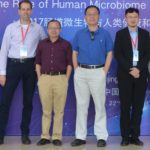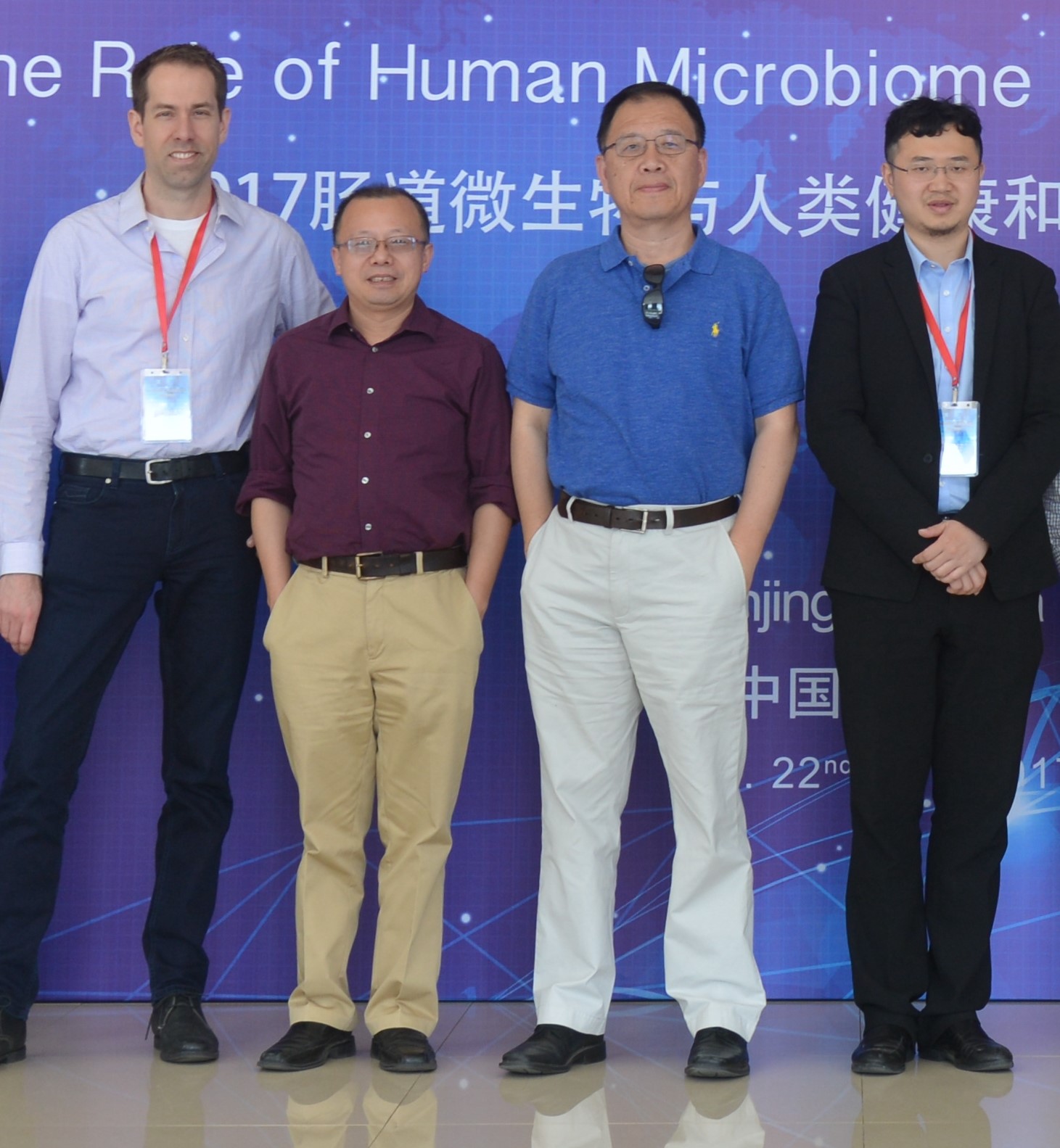Hirschsprung disease (HSCR) is a birth defect with an approximate worldwide incidence of 1 in 5,000 live births. It is caused by a congenital absence of ganglion cells in the distal colon, rendering the affected segment unable to relax and eventually resulting in functional obstruction.
HSCR can be treated surgically, but patients are at high risk of developing enterocolitis either before or after the surgery. In fact, Hirschsprung-associated enterocolitis (HAEC)—which as many as a third of HSCR patients develop—is the leading cause of serious HSCR-related morbidity and death.

Antoine Snijders, Jian-Hua Mao, Bo Hang, and Yankai Xia of Nanjing Medical University.
A team of Biological Systems and Engineering (BSE) Division researchers, in collaboration with researchers at Nanjing Medical University in China, performed the first study to prospectively investigate the gut microbiome in relation to HAEC. A prospective study design limits likelihood of reverse causation by collecting tissue samples before the occurrence of HAEC (which may dramatically alter the microbiome), lending additional validity to the results.
The team examined the intestinal microbiome composition at the time of surgery in HSCR patients who did (n=25) and did not (n=50) develop postoperative HAEC and identified a microbiome signature that might predict the development of postoperative HAEC. In addition, they found that exclusive breastfeeding might reduce the risk of HAEC through modulation of the intestinal microbiome.
Antoine Snijders, BSE staff scientist, was co-corresponding author on the paper, published in the journal Gut Microbes. BSE Division scientists Hang Chang, Bo Hang, and Jian-Hua Mao were co-authors.




